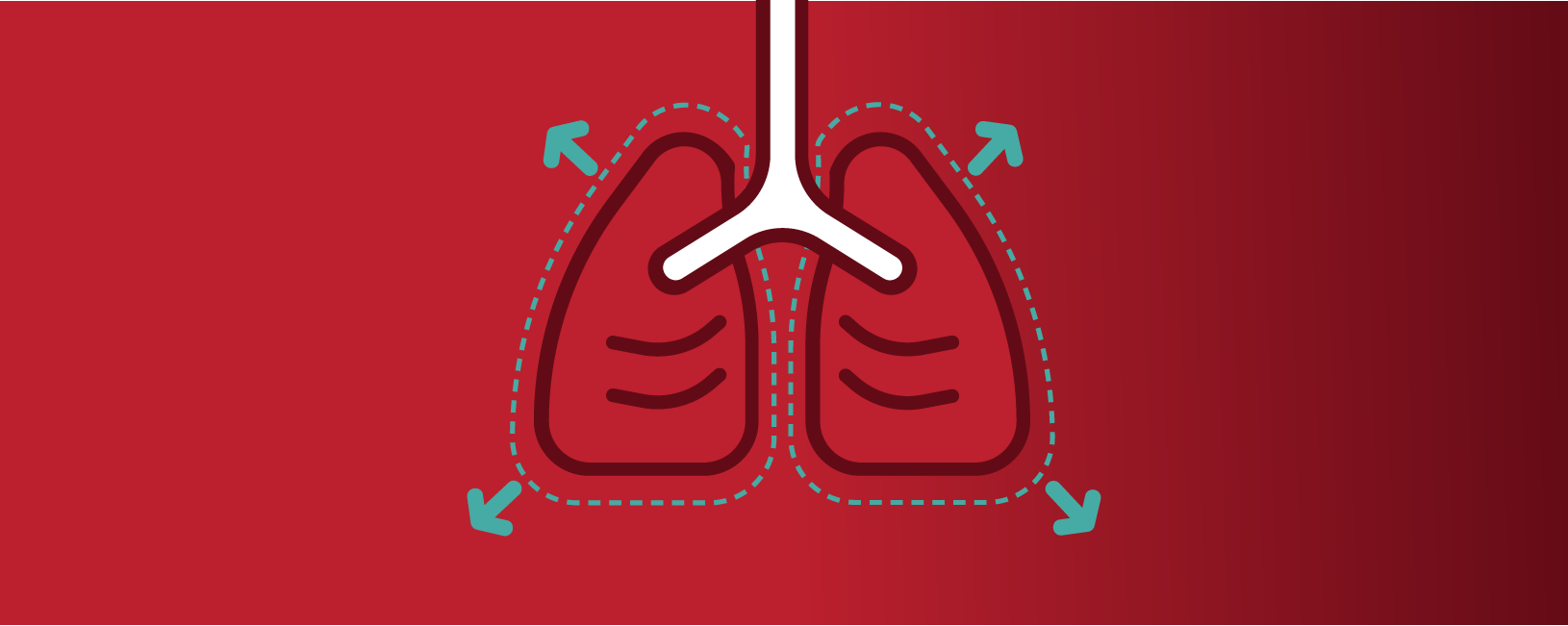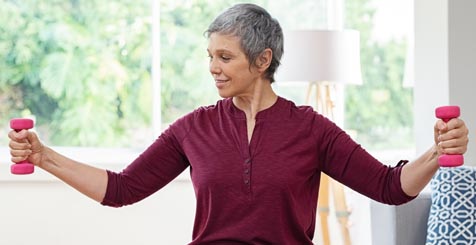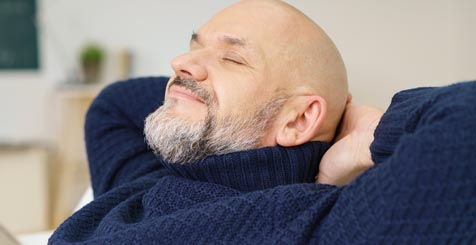Whether you’re managing an ongoing respiratory condition, recovering from an illness or dealing with anxiety, struggling for breath can be both frightening and frustrating. Working on your breathing and lung capacity is a sensible way to put yourself in control as much as you can and will help you feel more relaxed, too. Here are four breathing exercises to improve your lung capacity that you can practice at home – if you have a lung condition, remember to check with your healthcare provider first to make sure they’re right for you.
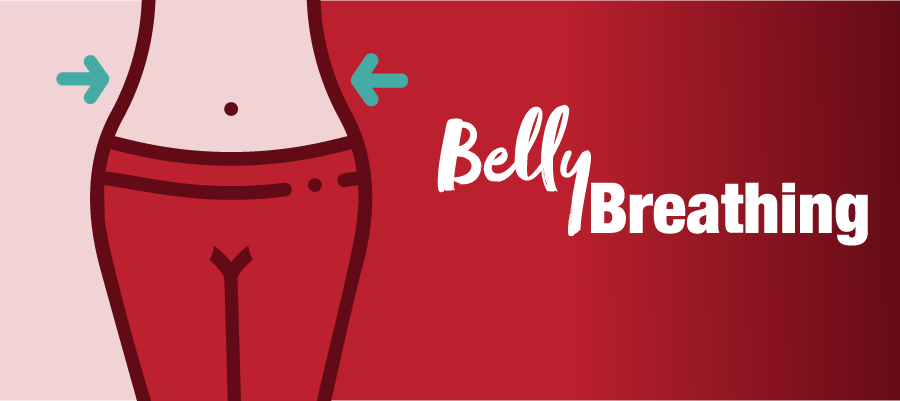
- Belly breathing
Belly breathing – or diaphragmatic breathing, to give it its technical name – is really helpful for people with COPD in particular. Your diaphragm is supposed to do most of the hard work when you breathe, and this exercise will help you to strengthen it.
- Relax your shoulders and sit back/lie down
- Rest one hand on your tummy and the other on your chest
- Breathe in through your nose for the count of two, feel the air as it passes through your chest to your belly. Your tummy should move out more than your chest.
- Purse your lips and breathe out through your mouth, pressing on your tummy at the same time.
- Repeat
Try and practice this exercise two or three times a day, aiming for about five to ten minutes each time. You can build up from lying to sitting, standing and eventually doing activities as you do the exercise. There are lots more tips on breathing exercises specifically for COPD here.
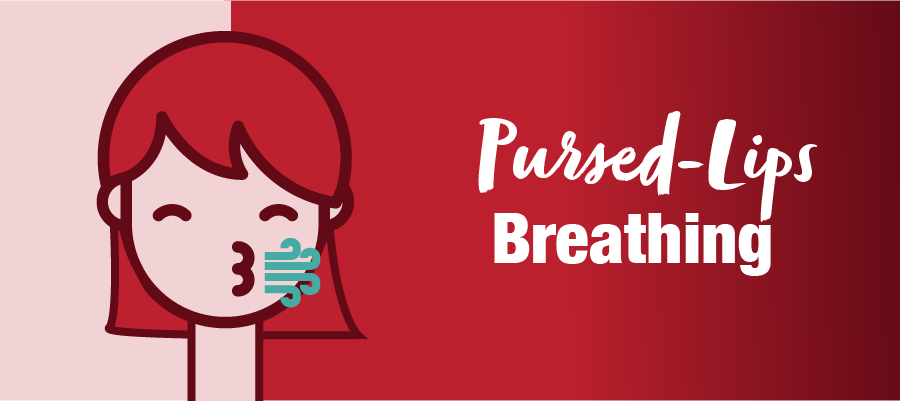
- Pursed-lips breathing
Feeling out of breath and need to calm yourself down? Pursed-lips breathing will help to calm your breathing and make you feel more relaxed.
- Breath in through your nose for two
- Pucker up your lips as if you’re about to blow out a candle
- Breathe out slowly, taking two to three times longer to exhale than you did to breathe in.
With this technique, longer out-breaths automatically trigger a relaxation response in your body when it’s in ‘flight or flight’ mode – this is what the 7-11 breathing technique is based on, which is a widely used relaxation technique you may have heard of.
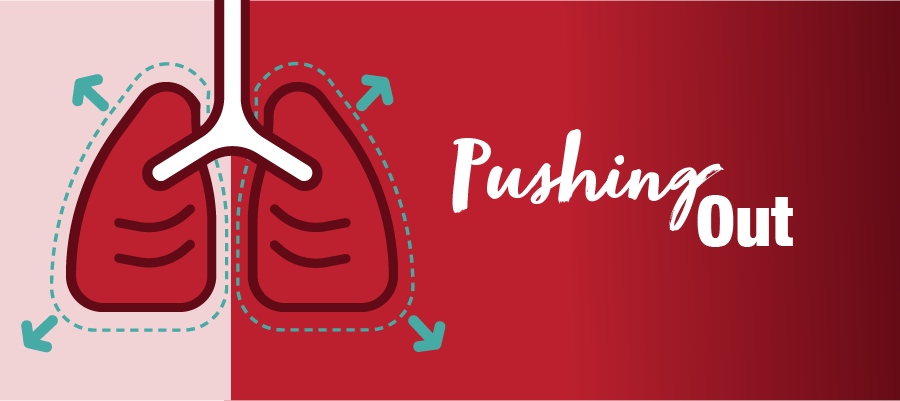
- Pushing out
Pushing out is a powerful exercise that will help your lungs work to full capacity so that they can absorb as much oxygen as possible.
- Stand upright with both feet flat on the floor and knees relaxed
- Slowly leaning forward, bend at the waist and push the air out from your lungs
- Breathe in as you straighten back up
- Hold your breath for a comfortable amount of time, up to 20 seconds
- As you hold your breath, raise your arms up above your head
- Finally, lower your arms and let your breath go as you relax
Aim to complete this exercise four times a day.
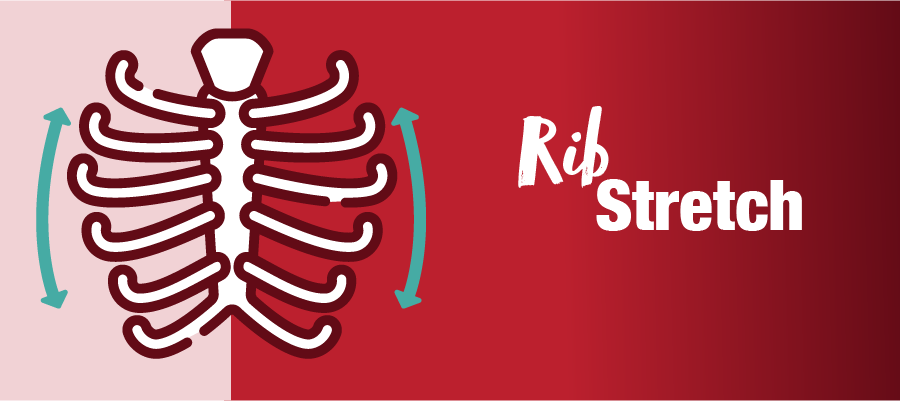
- Rib stretch
This exercise encourages your ribs to expand and contract as you breathe in and out, and trains your lungs to take in as much air as possible.
- Stand up straight and breath out to empty your lungs
- Slowly breath in until your lungs are completely full
- Hold your breath for as long as you comfortably can, up to 20 second
- While counting, put your hands on your hips, thumbs forward and little fingers touching behind your back
- Breathe out slowly, and relax
- Repeat three more times
Be patient: it’ll take time to see a noticeable difference in your lung capacity. But by practising these techniques you’ll help to improve how much air you can take on board, getting more oxygen into your body. You’ll feel sharped too, as your brain benefits from increased oxygen.
Which breathing techniques work best for you – have we included them here? Let us know your tips for better breathing!
Medical information. This is provided for informational purposes only and is not meant to be a substitute for advice by a doctor or other qualified healthcare professional. Patients should not use the information on the Active Patients website for diagnosing a health or fitness problem or disease. Patients should always consult with a doctor or other health professional for medical advice or information about diagnosis and treatment. Never ignore professional medical advice because of something you have read on Active Patients.



